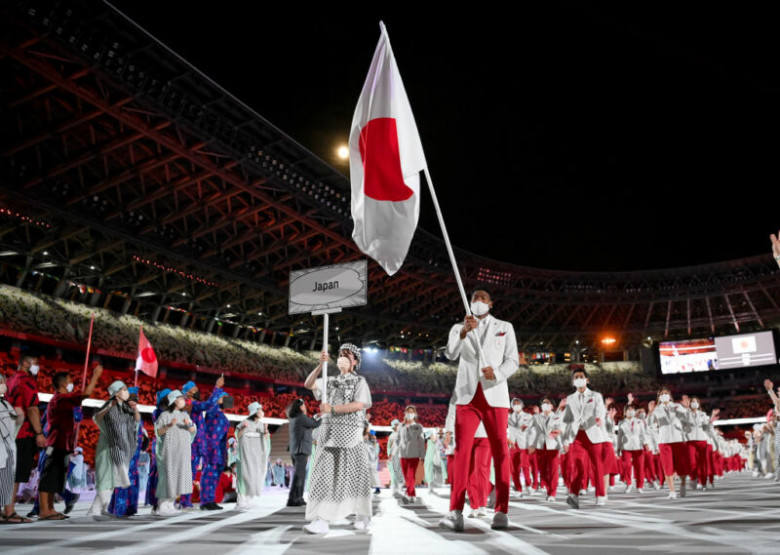The Tokyo Olympics could be a COVID-19 “super evolutionary event”

Ten days before the opening ceremony of the Tokyo Olympics, Kara Lawson, the coach of the United States women’s 3x3 basketball team, gave a press conference. The sport is new to the Olympics this year, and Lawson, a former WNBA player and coach at Duke University, told the dozen or so reporters participating online what she liked about it—the game is faster-paced, Lawson said, and more unpredictable than the five-on-five version. But during a global pandemic, Lawson added, the health of her players was her number one priority. “We’re obviously tested daily. I’m actually quarantined in my room right now,” Lawson said. “We’re masked all the time … a positive test at this juncture is hard for any team getting ready to go to Tokyo. We’re focused on doing our part, not just so we can have a good competition, but we definitely feel a responsibility to fellow human beings to be smart about eliminating transmission of the disease worldwide.”
Less than a week later, one of Lawson’s players—Katie Lou Samuelson, a power forward for the Seattle Storm—announced on Instagram that she had tested positive for COVID-19 and wouldn’t be able to go to Tokyo. Fast-paced, maybe, but not exactly unpredictable. As the 2020 Tokyo Games get underway, Samuelson is one of 91 people either in Tokyo for the Olympics or who were hoping to go who’ve tested positive for the disease, including US tennis player Coco Gauf, a Czech beach volleyball player, two South African soccer players, and so on.
The spirit of “Olympism” is supposed to ward off worldly concerns. The riders of the Apocalypse may stalk the globe, but they’re not allowed into an Olympic Village. War gets postponed, Famine withers in the dining hall, and Pestilence … well. The global pandemic has killed at least 4 million people and resulted in a very strange Summer Games—no cheering crowds, athletes essentially confined to quarters when they’re not going faster, higher, or stronger—all in an attempt to prevent the disease from spreading among the competitors and to the people of Japan, and to keep the Olympians from carrying new strains of the virus back to their home countries. The Olympics are one of Earth’s great symbols of international cooperation, but this year the Games are also a mass gathering in the middle of the worst pandemic in a century, where people from nearly every country on Earth will gather in a vast congregate living setting and compete in some close-contact sports, sometimes indoors. What could possibly go wrong?









































































